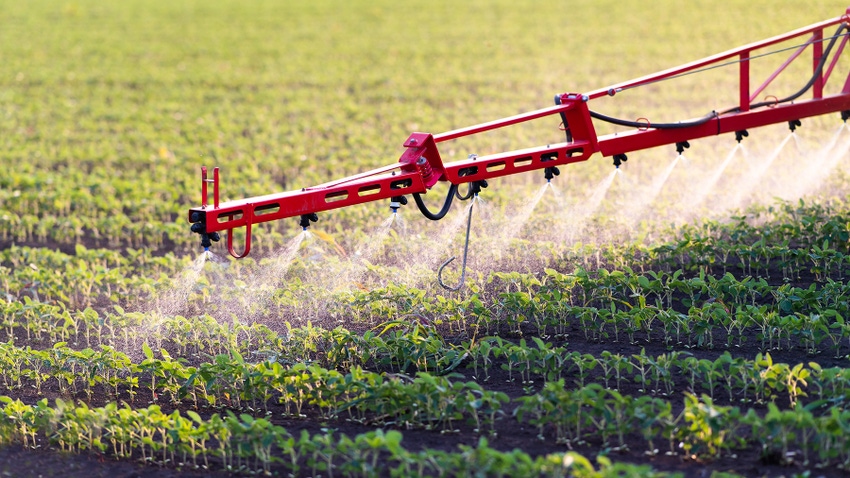
Industry groups are pressing the Environmental Protection Agency for options following the federal court order vacating the registrations for dicamba applications on tolerant soybean and cotton crops.
The court determined EPA violated Federal Insecticide, Fungicide, Rodenticide Act rules regarding notice and comment periods for issuing the “new use” dicamba registrations in 2020. The ruling implies farmers will not have access to the popular dicamba products XtendiMax (Bayer), Enginia (BASF), and Tavium (Syngenta) for the 2024 growing season.
The Agricultural Retailers Association and the American Soybean Association drafted separate letters to EPA Administrator Michael Regan demanding clarity for U.S. farmers.
“Farmers have already made their decisions about what varieties of cotton and soybean seed they want to plant in 2024, and retailers are already stocking not only the seed but also the herbicides these growers will need for their systems,” ARA writes.
If growers need to switch their seed and herbicide programs at this point in the season, ASA says there are nowhere near enough alternative seeds or herbicide volumes to meet the demand. “To accommodate a shift of tens of millions of acres, herbicide would have needed to be manufactured months or even years ago, and seed production would have needed to be ramped up one to two years prior.”
Farm Futures market analyst Jacqueline Holland adds that the extra costs to retool crop protection plans for farmers who have to eliminate dicamba will be an extra squeeze on farmgate profit margins. “USDA expects that in 2024, farmers will spend $20.9 billion on pesticides, or nearly 5% of expected 2024 farm expenses,” Holland says. “That’s a 5% increase from 2023 pesticide expenses and ranks as the second largest annual pesticide expense for U.S. farmers behind 2022.”
Dicamba-tolerant varieties account for more than 75% of all U.S. cotton acres and 45% of all U.S. soybean acres. For many farmers in areas with high herbicide resistance, dicamba in the only post-emergent herbicide that works on local weeds.
The National Cotton Council also urges EPA to appeal the ruling. “The loss of over-the-top dicamba products exacerbates an already difficult economic situation with current prices below the costs of production,” NCC writes.
Existing stocks policy
With planting set to begin soon, ARA and ASA encourage EPA to issue an existing stocks order under FIFRA. ARA says EPA should implement as broad of an existing stocks policy as possible, which would allow the distribution, sales, and use of all manufactured product as of the date of the cancellation order.
“Stopping short of those provisions will create unnecessary chaos and economic harm to agricultural retailers, distributors, and the farmers they serve,” ARA writes in its letter to the EPA.
ASA explains that if an existing stocks order is too narrow and limits the delivery of herbicide from upstream in the supply chain, it will not be useful for farmers. “At this point few farmers have taken possession of herbicide they have ordered for this growing season,” ASA says.
EPA’s Policy on Existing Stocks of Pesticide Products is a statement outlining how the agency handles existing pesticide products whose registrations have been changed. In the case of cancelled pesticides, the EPA focuses on three factors:
Whether there are significant potential risks which raise a question to whether the use of the cancelled pesticide results in unreasonable adverse effects
Whether the registrant of the cancelled pesticide has failed to meet an obligation of the registration
Whether the agency has taken a regulatory position with respect to the cancelled registration
EPA has yet to respond to the ruling.
"We recognize there are some very near-term existing stocks questions we have to answer and we're definitely prioritizing those,” said Michal Freedhoff, assistant EPA administrator on Wednesday. "We haven't yet figured out what our response is to the decision itself.”
Deja vu
The 9th Circuit Court issued an order on June 3, 2020, vacating the registrations of three dicamba herbicides for over-the-top applications on soybeans and cotton.
Similar to what’s happening now, that ruling led to confusion regarding what could be done with products already purchased and distributed to farmers, and groups called on EPA for guidance.
On June 8, 2020, EPA issued a final cancellation order outlining the circumstances under which the existing stocks could be used. EPA’s order prohibited the distribution or sales of the dicamba products but did allow growers and commercial applicators to use products that were in their possession as of June 3.
Have dicamba in your herbicide plan?
“If I was a farmer and have purchased or ordered one of these dicamba products, I would be checking with my retailer right away to see what information they have and could tell me,” says Bill Johnson, a Purdue University weed science professor. Johnson recognizes they may not know much yet either, but it’s important to open that line of communication to discuss options.
Johnson reminds farmers that this order only applies to dicamba applications for cotton and soybeans. Dicamba use for other crops, such as corn, will not be affected.
Read more about:
DicambaAbout the Author(s)
You May Also Like






